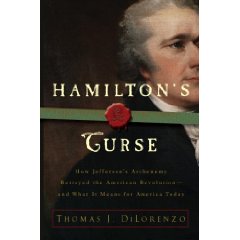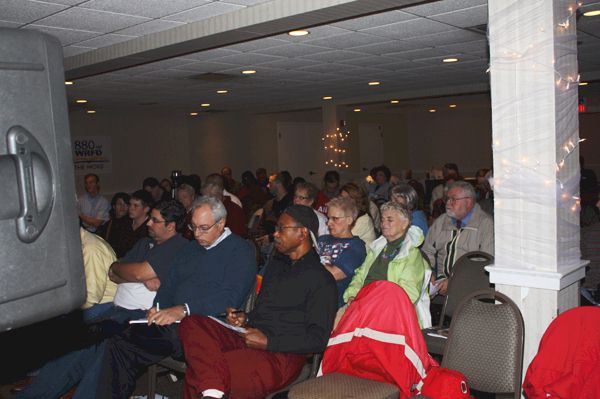There is currently a movement in the United States that is gaining a disturbing momentum. The leaders of the movement are agitating state governments to petition Congress to call a new constitutional convention. While groups on the left have been demanding a new convention for the purpose of re-writing the existing Constitution for decades the current calls are coming from groups that most would place in the “conservative” category. The liberal groups are calling straightforwardly for a convention with plenipotentiary constitution making authority while the conservative elements are calling for a convention limited by charter for the purpose of amending the existing Constitution. While the latter sounds reasonable it is the opinion of the Institute For Principled Policy, not on our own authority but based on extensive research on the legal, historical, and procedural precedents set by conventions of the United States, colonial America, and Great Britain, that the chartering of a so-called controlled or “shackled” constitutional convention will have the same result as the calling of a convention with plenipotentiary authority. That predicted result in either case is a new constitution. Based on further research into existing constitutional models, parts which are already being implemented, we believe that the government created by any new constitution will be divorced from both the bedrock philosophical moorings laid out in the Declaration of Independence and from the shackles imposed by the current constitution. In this light the Hegelian Dialectical nature of the debate over a new constitutional convention is exposed.
In this series we will present the case and documentation that are the foundation our positions.
_______________________________________________________
 You will understand the game behind the curtain too well not to perceive the old trick of turning every contingency into a resource for accumulating force in government– James Madison to Thomas Jefferson March 14, 17941
You will understand the game behind the curtain too well not to perceive the old trick of turning every contingency into a resource for accumulating force in government– James Madison to Thomas Jefferson March 14, 17941
Who are the players?
There are four major views about the calling of a new Constitutional Convention (Con Con). One of them is by far the most dangerous, but it’s not the one you might think. That group will be revealed later in the discussion. The first position we are describing as the “What’s a Constitution?” position. While that’s something of an overstatement (all of these position descriptions are slightly caricaturized in order to simplify the discussion. In reality there are positions that are subtle blends of these positions), what can be stated without exaggeration is that constitutional literacy is at a nadir. We can also say without exaggeration that this is apparently the majority position. This group is, by and large, out of the debate over a new Con Con except insofar as it can be manipulated by one or the other of the remaining groups. Because this group is so grossly ignorant of the Constitution they are often easily swayed by attractively packaged sound-byte style arguments. Because they neither know nor care to know the historical conditions of the first Con Con, they are unable to discern that there are concerted efforts to create a public demand for a new Con Con using deception and outright falsehood to do so. For simplicity’s sake we will call this group “the disengaged.â€
The second position is best characterized by the statement “A new Con Con is a dangerous idea in the current social and political climate.” This group is best described as “constitutionalist” rather than “conservative,” since they believe that there is nothing wrong with the country that cannot be solved by a return to foundational constitutional principles. This group would argue that the original intent of the Constitution should be the guiding principle of law, but that the intent of the framers was set aside long ago by “consolidationists,”- those who would concentrate government authority in Washington DC by any means necessary but mostly through the federal courts. Thomas Jefferson foresaw the problem of expansion of federal authority through the process of construction and stated to Wilson Nicholas in an 1803 letter-
I had rather ask an enlargement of power from the nation, where it is found necessary, than to assume it by a construction which would make our powers boundless. Our peculiar security is in the possession of a written Constitution. Let us not make it a blank paper by construction.2
To make it clear, the Institute for Principled Policy takes this position. For simplicity we will refer to this group as “the constitutionalists.â€
The third position is best characterized by the statement “A new Constitution MUST be written in a new convention immediately, if not sooner†position. This group can be spotted by their rhetoric. You will hear things like “the Constitution was written for a different time†or “the Constitution was written before mass communication, transcontinental travel, while the US was a small de-populated shoestring nation, before the ICBM, terrorism, etc., etc. etc.†Of course, all of these arguments are empty because they ignore the reason the Constitution was written the way it was.
The Constitution was written to restrict the ability to concentrate power in a central government. The desire to accumulate power is a timeless problem based on man’s sinful nature. The members of this group are radical revolutionaries. They are fully aware that the limits on government built into the Constitution simply cannot be sufficiently twisted, manipulated or re-interpreted to allow the confiscation and redistribution of wealth or to build the necessary power structures required to administer the giant welfare state that would have to be created.
This group believes strongly that the current Constitution represents an obsolete view of government as the protector of God-given rights in favor of the view that government is the fount from which springs all good things including man’s rights and needs. Because the document represents superseded theory of government it must be smashed and replaced with one that is more in tune with “modern theories†(in fact just rehashed ancient theories of despotism) of government. Members of this group, in accordance with their operational atheism (though many would claim agnosticism or some form of powerless faith in a deistic god), believe that the end justifies the means by which the smashing of the Constitution is done. They will say or do ANYTHING to get a new convention. They are media savvy and smart enough to realize that they are in a minority. Therefore, in order to get the convention they want a way must be devised to recruit members of another one of these groups. They realize that with a careful use of deception and manipulation of certain crises enough people from the first or second groups can be induced to change positions to the fourth group and the fourth group can be baited into joining them in calls for a new convention. For simplicity we will refer to this group as “the radicals.â€
The fourth group is best characterized by the statement “a ‘shackled’ Constitutional Convention can be called and completely controlled by the states†position. Of the four basic positions this one is the most dangerous. Considering the description of the previous position you may find this surprising. But it is the combination of historical illiteracy and the legitimate desire to use existing legal procedures to solve crises in government that has led to a situation that can only be described using Paul Craig Roberts’ phrase, “the tyranny of good intentionsâ€3. That is because they have taken the bait dangled by the radicals without doing the necessary historical research to confirm the assertions made by them. The bait is that a single issue convention can be called by the states and can be controlled by “strongly worded†state and federal constitutional convention resolutions, up to and including adding “criminal penalties†for failure to comply with those resolutions (creating major procedural and constitutional faux pas that will be discussed later). The problem with this is that the bait hides a hook. The hook is that all of the procedural rules and legal and historical precedents expose the fact that a “controlled†convention is a myth cut from whole and that a convention cannot be held to any legislative restrictions. Once the bait is taken and the hook set the fish finds itself in a situation that it neither expected nor wanted. The fisherman however has exactly what he set out to get.
The vulnerable group is the most dangerous in the Con Con debate because, in many cases, they have trusted moles from the radical group. The radicals have worked themselves into prominent positions in think tanks that the vulnerables trust to give them the correct information and have badly misled them. The radicals are willing and able to use personal relationships to pass along skillfully twisted versions of history and carefully constructed tendentious arguments in favor of a “controlled†single-issue convention. Though the vulnerable group is the most dangerous, they are not the enemy; in fact many good constitutionalists have adopted this position. Most of them believe in government limited by law. What has happened is that many in this group have been seduced by reasonable-sounding but false arguments regarding constitutional procedures and precedents. This group is well-meaning and enthusiastic about real reform and a lack of historical reference points makes them vulnerable to unscrupulous radical Con Con advocates with a knapsack full of convincing but false talking points. For simplicity we’ll refer to this group as “the vulnerable.â€
Rules of the game
Most of the players are under the impression that there are a set of rules. They believe that all players have agreed to be honest in presenting their arguments and the facts that form the foundations of those arguments. In any game where at least one of the players believes that the end justifies the means (e.g., the radicals, including those who are posing as vulnerables) the rules the others are playing by are rendered meaningless by players who deny either the validity of the rules or that the rules apply to them. It is as if in a high-stakes poker game one of the players has slipped a marked deck into the game and additionally has concealed a number of face cards for later use. The cheater might attempt to defend himself with the excuse that his winnings will be used for “the greater good†but that does not change the fact he is a fraud and that his idea of the “greater good†not shared by the other players. This puts the other players at an extreme disadvantage because they still assume that there are rules that all of them are playing by. In the case of the Con Con call game, the rules are thought by the players to be honesty regarding arguments made about the historical, procedural and legal precedents of previous calls, resolutions and conventions. The stakes in the game of whether or not to call a new constitutional convention are too high to assume impeccable honesty on the part of those making the case for a new convention. Therefore the players must carefully examine the claims both for and against the calling of a new constitutional convention. In the words of Ronald Reagan, “trust but verify.†They must ask carefully crafted questions aimed at confirming the claims, pro and con, of the different players and, VERY importantly, they must CONFIRM the answers given. It is not enough to trust that the answers given are the honest truth. Remember, that the radicals will say ANYTHING to get a new convention and that they do not play by the rules. We realize that since this assertion is done in a way that puts the burden of proof on us and so we will make our case by providing the answers to questions that no one else seems to be asking (or if they are asking they are accepting answers at face value) regarding the calling of a new constitutional convention.
In the next part of this series we will begin to examine the questions that MUST be answered.
__________________________________________________
1 Madison, James, Letters and Other Writings of James Madison Fourth President of the United States in Four Volumes, Vol. II 1794-1815, J.B. Lippincott & Co., Philadelphia, PA, 1865, P. 7
2 Peterson, Merrill D., ed., Thomas Jefferson, Writings, Library of America, Literary Classics of the United States, Inc., New York, NY, 1984, P. 1140, letter to Wilson Carey Nicholas
3 Roberts, Paul Craig, Lawrence M. Stratton, The Tyranny of Good Intentions; How Prosecutors and Bureaucrats Are Trampling The Constitution In The Name of Justice, Forum (an imprint of Prima Publishing), Roseville, CA 95661, 2000
 “Conservatives who genuinely believe in limited government are not generally exposed to the Hamilton who at the Constitutional Convention called for a king-like permanent president and who subsequently dedicated himself to undermining the limits on governmental power laid out in the very Constitution he championed in the Federalist Papers.” This quote from page 171 of the book Hamilton’s Curse is a bit of an understatement, as most Americans, conservative and otherwise, are generally exposed to the results of Hamilton’s efforts in our government, our systems of education, business and finance, to name but a few. The bowl of Hamilton’s poisoned fruit is spilling over with plenty.
“Conservatives who genuinely believe in limited government are not generally exposed to the Hamilton who at the Constitutional Convention called for a king-like permanent president and who subsequently dedicated himself to undermining the limits on governmental power laid out in the very Constitution he championed in the Federalist Papers.” This quote from page 171 of the book Hamilton’s Curse is a bit of an understatement, as most Americans, conservative and otherwise, are generally exposed to the results of Hamilton’s efforts in our government, our systems of education, business and finance, to name but a few. The bowl of Hamilton’s poisoned fruit is spilling over with plenty.




